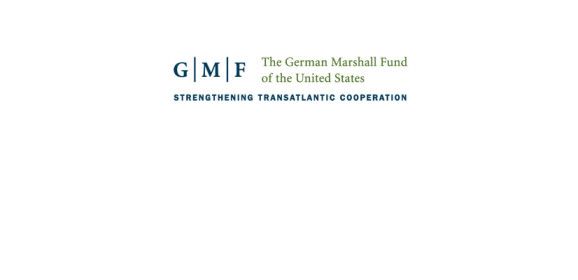Section: The German Marshall Fund of the United States (USA)
The Difficult but Necessary Task of Supporting Democrats in Russia
Photo credit: Bogomolov.PL Events in Russia in 2016 suggested that there is no prospect of political change in the country for the foreseeable future, and especially not in the run-up to the next presidential election in 2018. The regime appears to be more secure than ever and President Vladimir Putin dominates political life. United Russia and...
The Difficult but Necessary Task of Promoting Democracy in Russia
Photo credit: Bogomolov.PL Events in Russia in 2016 suggested that there is no prospect of political change in the country for the foreseeable future, and especially not in the run-up to the next presidential election in 2018. The regime appears to be more secure than ever and President Vladimir Putin dominates political life. United Russia and...
One-Step Marathon
Editor’s Note: This blog is part of an ongoing series of contributions from participants in The German Marshall Fund’s flagship leadership and development program, The Marshall Memorial Fellowship (MMF). “There can be no doubt that all our knowledge begins with experience” I. Kant I have just accomplished my trip to the United States...
Border Security in Eastern Europe: Lessons for NATO and Partners
Introduction The geopolitical dynamics in Europe are changing. Countries such as Georgia, Ukraine, and Moldova have undergone significant transformation processes since the collapse of the Soviet Union. However, history’s aftermath continues to influence these states. The relatively young borders in Eastern Europe have been the stage of...
Don’t Bet on Enduring Republican Reset With Russia
WASHNGTON, DC: Donald Trump won’t be the first American president to “reset” relations with Russia following an assault on Western interests and values. In March 2009 President Barack Obama launched his own version of a reset – only seven months after Russia’s brazen invasion of Georgia, an ally of the United States that had been on...
Russia’s Middle Eastern Drive Could Dilute Europe’s East-South Divide
The fall of Aleppo shows painfully how Russia is largely given free hand in pressing forward its geopolitical interests with whatever means it chooses without fearing any consequences from the fading ‘international community’. There are many reasons why the United States and Europe have refrained from putting more forceful pressure on...
Regional Security Cooperation in the Baltic Sea Region
Introduction In a strategic contest between the West and Russia over the post-Cold War architecture, the security of the Baltic Sea region depends on its allies within NATO and the European Union. Since Russia annexed Crimea in 2014, it has been clear that the Kremlin is not interested in maintaining the status quo or that it interprets it in a...
U.S.–Russian Relations in the Next Presidency
Photo credit: U.S. Department of State Introduction Predicting the course of U.S.–Russian relations has never been easy. Ronald Reagan came to power promising to confront the “evil empire” by investing billions in missile defense and a six-hundred ship navy. He left office with the best ever relationship with the USSR. George W. Bush claimed to...
Judy Asks: Can Europe Defend Itself?
A selection of experts answer a new question from Judy Dempsey on the foreign and security policy challenges shaping Europe’s role in the world. Michael Leigh – Senior fellow at the German Marshall Fund of the United States The two features of U.S. President-elect Donald Trump’s putative program that have unnerved some European...
Warsaw Wants to Hold the Line on Russia
Poland has been a staunch ally of the United States — both within NATO as well as bilaterally. Poland is a member of the U.S.-led Global Coalition to Counter ISIL, spends the stipulated 2 percent of GDP on defense, and has joined the United States and other allies in Afghanistan and earlier in Iraq. The countries are deeply intertwined, and the...



